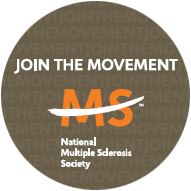Headaches may be good for your brain
Migraine sufferers in study show less decline
By JOHN FAUBER
Posted: April 23, 2007
Is it possible that suffering through years of migraine headaches actually might have a beneficial effect on the brain?
A provocative new study has raised that improbable prospect after finding that longtime, middle-aged migraine sufferers showed less cognitive decline and memory loss over a period of 12 years than a group of migraine-free adults.
Researchers can't explain what could be a silver lining in the agonizing cloud that is migraine, but it's possible that the physiological changes that accompany the headaches might protect brain cells over the long haul.
Beyond offering a modicum of solace to the 30 million migraine sufferers in the United States, the strange finding, if verified, could offer researchers new leads into ways to preserve memory in aging brains.
"This is really a surprise," said Bhupendra Khatri, director of the Center for Neurological Disorders at Aurora St. Luke's Medical Center. "This is going to stimulate a lot of research."
If anything, migraine sufferers might be expected to have more cognitive decline, said Khatri, who was not a part of the study.
He noted that they tend to suffer from more depression, anxiety, seizures and stroke than people who do not have migraines.
However, there has been a lack of research looking at the long-term effect of migraine on memory and cognitive function, he said.
The research, published today in the journal Neurology, is the first prospective study looking at the lifetime effects of migraines on memory and cognitive function.
The study involved 1,448 people, including 204 who had migraines, who were given several cognitive tests and followed for an average of 12 years.
Word recall tests
Since most of the participants were in their late 40s and early 50s when the initial tests were given, a small decline in memory associated with normal aging over 12 years would have been expected in both groups.
On word recall tests, however, those who suffered from migraine declined slightly less than non-migraineurs. The benefit was significant for those who suffered from migraine with aura, or a warning that the migraine was coming on. On average, they remembered about one word to 1.5 words more on those tests than those who did not have migraines.
On a separate cognitive test, those who have migraines with aura who entered the study at 50 or older had a significantly lower rate of decline than those who don't have migraines. "It's a pretty profound effect," said Nick Stanek, a clinical assistant professor of neurology at the University of Wisconsin-Madison.
Stanek, who was not a part of the study, noted that those with migraines began the study with slightly lower scores on the cognitive tests."They start lower, but at age 50 they don't get as worse as people without migraines," Stanek said. "I was surprised that they didn't deteriorate as fast after age 50. I would have predicted that they deteriorated at the same rate or even more quickly."
Stanek said his best guess is there is something going on at the molecular level in the brain cells of people with migraines that helps preserve memory.
The finding even surprised the study's authors.
"People were surprised, but at the same time, they said there may be something to this," said lead author Amanda Kalaydjian, a researcher with the National Institute of Mental Health.
Possible explanations
Kalaydjian said she and other researchers have tried to come up with explanations, and although they have several, they all are highly speculative.
It's possible that the increased use of non-aspirin, over-the-counter painkillers might be asserting some type of neuro protective effect in the brains of those with migraines. Another theory is that the lifestyle changes people initiate to reduce migraines, such as getting more sleep, eating well, using relaxation techniques and taking supplements, are helping preserve brain function.
Still another explanation is that the prescription medications they use might help preserve cognitive function.
"However, it seems more likely that there may be some underlying biologic mechanism such as changes in (blood vessels) or underlying differences in (brain cell activity), which results in decreased cognitive decline over time," the researchers wrote.
If the explanation is found, it could have implications for preserving memory in everyone, not just people with migraines, Kalaydjian said.
Subscribe to:
Post Comments (Atom)

No comments:
Post a Comment